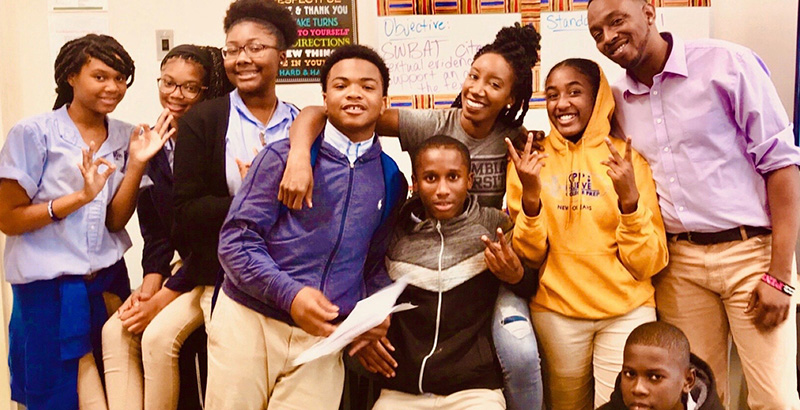So, You Want to Run for School Board. First Ask Yourself If You Believe in the Genius of Black Children and Are You Willing to Fight to See It Realized

Stewardship of anything is not a right, but rather a privilege. For every individual considering running for a school board seat within a traditional public school system, every individual contemplating joining a charter school board, and every current sitting school board member within either setting: This message is for you.
In the height of our chants and demands to create a world where Black lives truly matter, I challenge you to examine the beliefs and assumptions you may hold about Black children, in particular, as you consider accepting positions to exercise governance of their public education.
At a moment in time when posting a #BlackLivesMatter message onto school, district or network social media platforms; crafting public statements; and even quickly providing Juneteenth as a paid day off can unfortunately also be driven by a leader or organization’s commitment to optically or politically appear aligned (though often not aligned in its internal policies and practices), I believe it is critical to dig deep and recognize that far too many board members view Black children from a deficit-based lens.
To begin with, board members must believe that Black children — regardless of their economic status — are absolutely brilliant. In fact, Black children arrive to us in this state because they descend from a multitude of generations that have consistently modeled innovation in the worst of circumstances, beauty in the midst of deep generational pain, and problem-solving in the midst of hopelessness. Our children’s minds are intricate, their thoughts are vast, and their audacious visions for the future have often paved the way to some of the most catalytic social change our country has ever seen.
As a board member, believe in their power. Ensure that educators within your district or network make it their mission to discover the brilliance they already possess, move mountains to provide them the resources they need to actualize their gifts, and make it a point to consistently enforce intentional language of their strengths and assets as opposed to consistent framing of the disparities they face.
Our children don’t need saviors. Our children need leaders who will stand up for them and not be swayed by personal or political gain and interests. The question is: Do you really believe in the genius of Black children, or deep down, do you believe Black children — particularly those in poverty — are inferior and undeserving of the best? To the extent that you believe the latter, you will always allow and make excuses for the operation of schools that are unfit and the mismanagement of funds, and unequivocally provide an inferior education that reinforces the aspirations of white supremacy.
As a board member, you must also believe that Black children are undeniably multifaceted, multitalented, and far from being a monolith. When you believe this, you will fight for a plethora of rich learning opportunities, not subpar resources; access to a variety of content offerings, not just the bare minimum of what is required by your state; and you will do absolutely everything in your power to position and showcase the gifts, talents, creativity and powerful individuality they bring, not only within your local landscape, but to a national and global stage.
Black children are incredibly resilient, inquisitive and fascinating. They need not be told what a character trait of grit looks like because in far too many settings, many of our Black youth embody this character trait in more ways than the educators who stand in front of them. However, when you only see our children in stereotypes and do not believe or see the wealth of knowledge and assets within our community, you will never position yourself as a board member to center their voices nor the voices of our community in your decision-making.
Find any and every chance you can get to spend time with students and families within your district or network. Use your personal and professional resources to position our children for success versus only doing so for your own children. Understand that our children are your children. They’re not “those children” or “these kids.” Their mental, emotional and physical well-being is your literal responsibility.
The question is: Do you believe that the Black children deserve absolutely everything you want for your own kids? Even for Black school board members, if your class, social status, affiliation with a sorority or fraternity, etc., compel you to believe that you and your children or family are better than the Black children and families you serve as a board member, you are also deeply a part of the problem. For any and all board members, whatever you do and want for your children should be no different than what you do for the children of the district and network you serve.
Krystal Hardy Allen is founder and CEO of K. Allen Consulting, a doctoral student at Columbia University, founder, a former teacher and a school board member at Success at Thurgood Marshall in New Orleans.
Get stories like these delivered straight to your inbox. Sign up for The 74 Newsletter

;)
